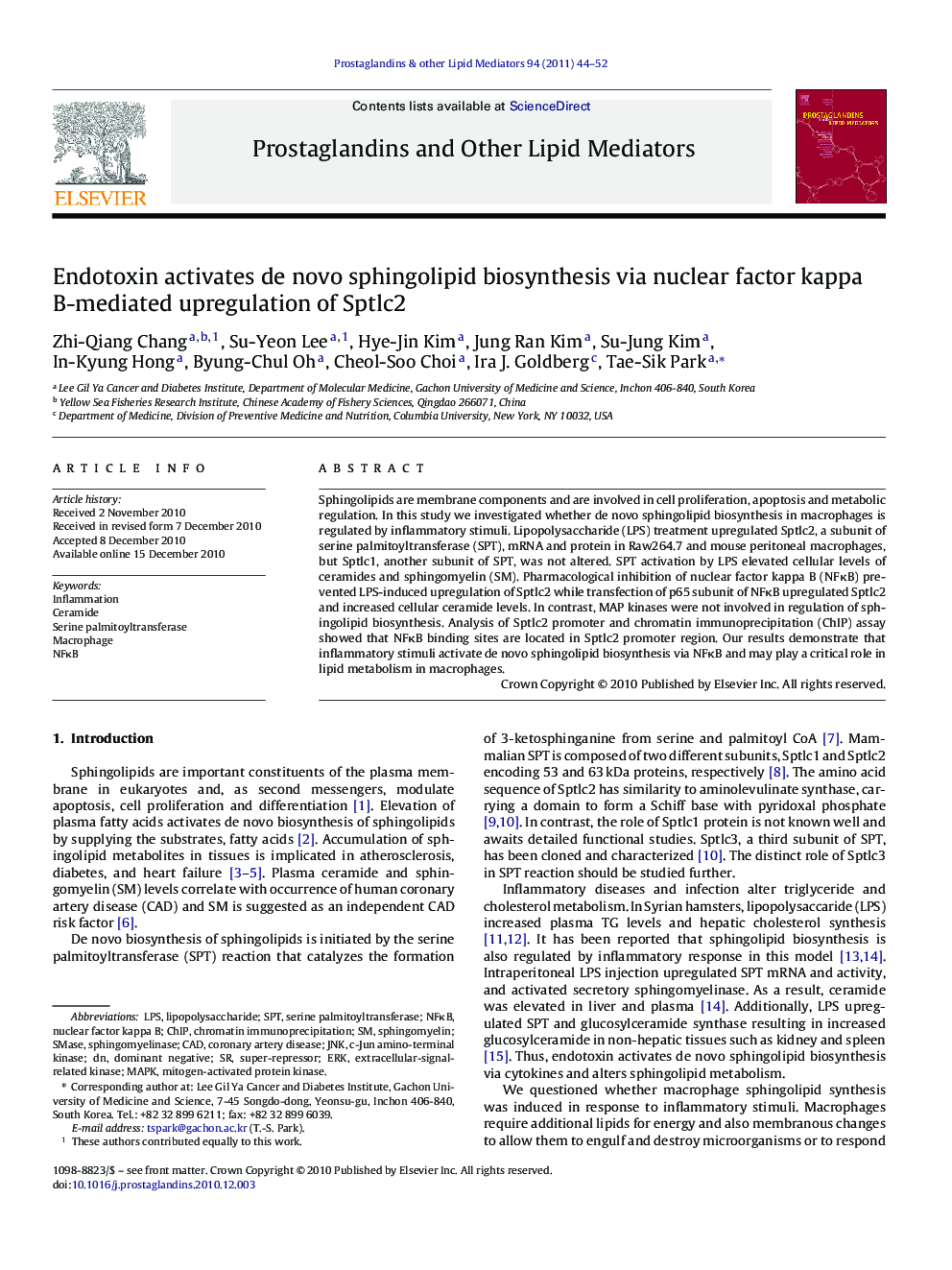| Article ID | Journal | Published Year | Pages | File Type |
|---|---|---|---|---|
| 2019833 | Prostaglandins & Other Lipid Mediators | 2011 | 9 Pages |
Sphingolipids are membrane components and are involved in cell proliferation, apoptosis and metabolic regulation. In this study we investigated whether de novo sphingolipid biosynthesis in macrophages is regulated by inflammatory stimuli. Lipopolysaccharide (LPS) treatment upregulated Sptlc2, a subunit of serine palmitoyltransferase (SPT), mRNA and protein in Raw264.7 and mouse peritoneal macrophages, but Sptlc1, another subunit of SPT, was not altered. SPT activation by LPS elevated cellular levels of ceramides and sphingomyelin (SM). Pharmacological inhibition of nuclear factor kappa B (NFκB) prevented LPS-induced upregulation of Sptlc2 while transfection of p65 subunit of NFκB upregulated Sptlc2 and increased cellular ceramide levels. In contrast, MAP kinases were not involved in regulation of sphingolipid biosynthesis. Analysis of Sptlc2 promoter and chromatin immunoprecipitation (ChIP) assay showed that NFκB binding sites are located in Sptlc2 promoter region. Our results demonstrate that inflammatory stimuli activate de novo sphingolipid biosynthesis via NFκB and may play a critical role in lipid metabolism in macrophages.
Graphical abstractFigure optionsDownload full-size imageDownload as PowerPoint slideResearch highlights▶ Inflammatory response by LPS increases SPT activity via upregulation of Sptlc2 in macrophages. ▶ Upregulation of Sptlc2 by LPS is caused by the NFκB pathway not by other MAP kinase pathways. ▶ NFκB-specific response elements exist in the promoter region of Sptlc2.
